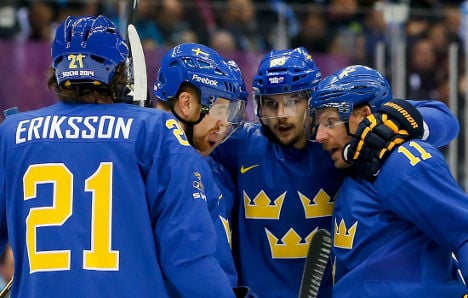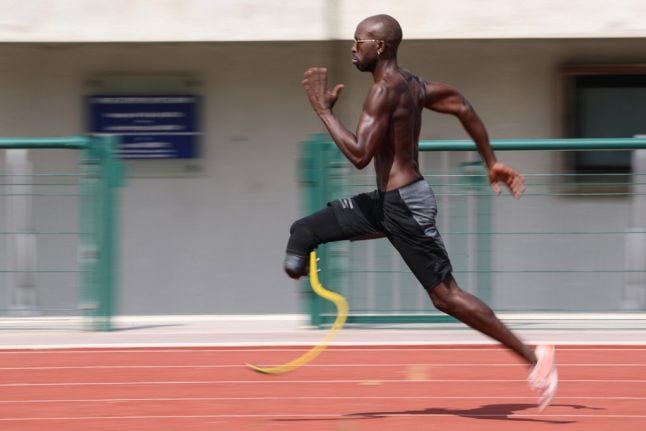Sweden built a 4-0 lead then allowed the Czechs to score two straight goals in the middle period before holding on in the third for the Group C preliminary round victory at the Bolshoi Ice Dome.
"We came out really strong in the first and controlled the pace," said Karlsson. "Everybody did their job."
In the other game Wednesday night, Switzerland scored with just eight seconds left in the third period to beat Latvia 1-0 at the Shayba Arena.
Karlsson scored the opening goal of the 2014 men's tournament halfway through the first period while the Swedes had an extra attacker on the ice because of a delayed penalty to the Czechs.
Karlsson's shot from the point beat Czech goalie Jakub Kovar who was being screened by Sweden's Daniel Alfredsson. His second goal was also partly the result of a forward parked in front of the net screening the goaltender.
"The first one was a great screen. The second one was a great screen as well. I just hit the spot," Karlsson said.
"It feels nice to contribute with a couple of goals. Sometimes you just have to be in the right spot."
Henrik Zetterberg and Patrik Berglund also scored for Sweden who won the gold medal in 2006 in Turin.
Jaromir Jagr and Marek Zidlicky scored for the Czechs who are coming off their worst-ever Olympic outing, finishing in seventh place at Vancouver 2010.
Henrik Lundqvist was superb in goal for Sweden, stopping a total of 29 shots. The Czechs outshot Sweden 15-5 in the third period but Lundqvist closed the door.
"It was fun to be out there," Lundqvist said. "We got a really good start. After they scored their second goal things changed but I am happy with the way we regrouped."
Berglund gave the Swedes a 2-0 lead with 6:53 left in the second. Berglund skated across the blueline, chipped the puck off the boards to himself then beat Kovar with a slapshot to the blocker side.
RELATED: Sweden's ten best winter Olympic heroes
Czech coach Alois Hadamczik pulled starting goalie Kovar and replaced him with Alexander Salak after Zetterberg scored to make it 3-0 just 51 seconds into the second.
Hadamczik's decision to start Kovar in the first game of the tournament ahead of Ondrej Pavelec surprised some people. Winnipeg Jets goalie Pavelec didn't even dress for Wednesday's game.
Karlsson scored his second of the game to make it 4-0 just over four minutes into the second.
The goaltending switch appeared to spark the Czechs as Jagr and Zidlicky scored goals less than two minutes apart in the second to cut the Swedes lead to 4-2. Zidlicky scored after taking a drop pass from Patrik Elias and Jagr's one-handed backhand shot rolled off the far post and went in.
Simon Moser scored the only goal for the Swiss who hammered away at Latvian goaltender Edgars Masalskis throughout the game until they finally got the game winner in the final seconds.
Moser used teammate Nino Niederreiter as a screen as his shot went off Masalski's arm and into the net.
DON'T MISS: Hockey wasn't always Sweden's pride on ice





 Please whitelist us to continue reading.
Please whitelist us to continue reading.
Member comments